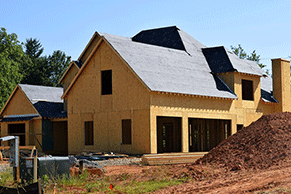What are One-Time-Close Construction Loans
Three Stages Combines into One Process
If you are looking for financing to build your new home, you may not know where to start. It can be a headache to deal with the different stages of a tradition construction loan: the “pre-approval” or “commitment” stage, the “interim lending” stage, and the “permanent loan” stages. This is where the One-Time-Close option comes in. With a One-Time-Close construction loan, those three stages are combined into one single process. With this type of transaction, the borrower is able to obtain permanent loan approval, as well as close the interim and permanent loan transaction before construction begins, all in one single transaction.

















